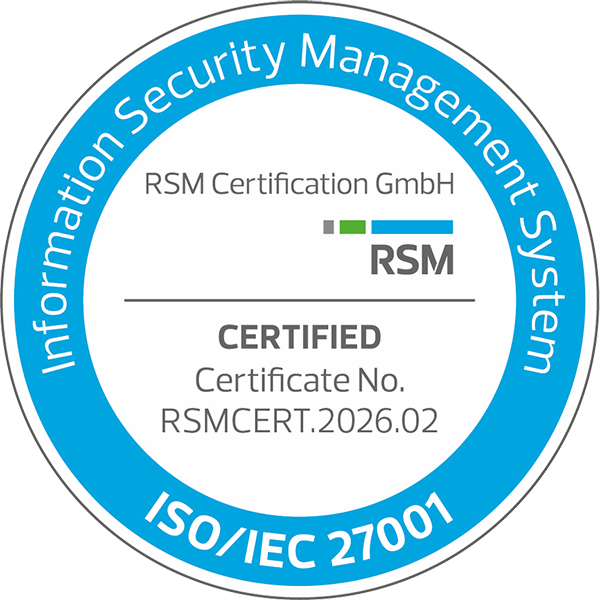But for remote work at home to truly succeed, it takes more than a laptop on the kitchen table. Clear guidelines, reliable technology, and strong self-management are key.
Was ist Home office?
“Home office” is a common everyday term – popular, widely used, and often used synonymously for any kind of work done outside the traditional office. Legally, however, it’s not clearly defined and doesn’t appear in official regulations in Germany.
In practice, what many refer to as home office often aligns with what’s officially known as telework: working from home with a permanent setup, structured routines, and clear agreements between employer and employee. Work is performed digitally, typically via secure connections such as VPN access, and requires appropriate technical equipment.
Home office vs. Telework vs. Mobile Work
Die Begriffe rund ums Arbeiten außerhalb des Büros werden oft durcheinandergebracht. Doch rechtlich und organisatorisch gibt es klare Unterschiede. Wer sie kennt, kann besser entscheiden, welches Modell zum eigenen Unternehmen oder zur persönlichen Arbeitsweise passt.
Telework – Legally Defined?
Telework is the only term that is legally defined in Germany – specifically in the Workplace Ordinance (§ 2 Sec. 7 ArbStättV [DE]). The regulation describes a permanently installed screen-based workstation located in the employee’s home. Requirements: the workstation must be permanently set up, equipped by the employer, and formally agreed upon in writing. Occupational safety and ergonomic standards must also be ensured.
Home office – Popular but Vague
Home office is the commonly used term, but it lacks legal clarity. In practice, home office may refer to either telework or mobile work. The key point: once a home-based workstation is permanently set up and the employer assumes responsibilities, it is effectively considered telework.
Mobile Work – Flexible but Self-Directed
Mobile work is the most flexible option. Employees work independently of location – on a train, in a café, on the road, or even from home. There is no fixed workstation, no obligation for the employer to provide equipment, and no specific requirements for the work environment. Responsibility lies primarily with the employee. The employer typically provides the work devices (laptop, smartphone).
When Does Working from Home Make Sense?
Of course, working from home isn’t suitable for every role, but in many areas it’s a real asset. So when is it worth considering? Especially when tasks can be completed digitally, require little physical presence, and allow for solid self-management.
Typical examples include:
- IT roles: software development, system administration, support
- Marketing and communications: content creation, social media, campaign planning
- Sales and customer service: phone consultations, offer management
- Administration and accounting: data maintenance, finance, controlling
Creative work also benefits from the quiet home environment – such as design, writing, or concept development.
Home office is especially effective when:
- tasks are clearly defined and require only moderate coordination,
- employees are able to work independently and take responsibility,
- long commutes or family obligations make office presence difficult,
- a better balance between work and personal life is needed.
Of course, this requires clear rules, reliable technology (a digital workspace), and mutual trust. But when the framework is right, working from home can boost productivity—and employee satisfaction right along with it.
My Experience with Mobile Work – Including Home office
For over five years, I’ve been working remotely, not from a permanently set up home office, but flexibly: sometimes from home, sometimes on the go, and occasionally in the office. This way of working gives me the freedom to adapt my workspace to the task at hand and my personal situation.
Spontaneous coordination? Works smoothly via chats, short video calls, or team meetings. My impression: communication isn’t less direct than in the office – often it’s even more focused. Ideas are shared quickly, and questions are clarified in real time or asynchronously via chat, giving responses time to mature.
Self-management plays a key role. A structured daily routine with set working hours, breaks, and clear goals helps me stay focused. Digital tools help me prioritize tasks and maintain a clear overview.
Of course, there are challenges – like clearly separating work and personal time. But with a dedicated workspace and consciously set boundaries, that can be managed well.
My conclusion: Mobile work – including home office – is not just practical, but a productive and flexible work style that has proven highly effective in my day-to-day content marketing work.
FAQ: Working from a Home office
Is working from a home office legally regulated?
Only telework is legally defined in Germany (§ 2 Sec. 7 of the Workplace Ordinance – Arbeitsstättenverordnung). The term home office is broader and not officially codified.
ho covers the cost of equipment for home office?
In the case of telework, the employer is required to provide the necessary equipment. For mobile work, there is no legal obligation to do so.
How does spontaneous communication work when working from a home office?
Through digital tools such as Slack, Microsoft Teams or Zoom – via chat, calls, or video conferencing.

